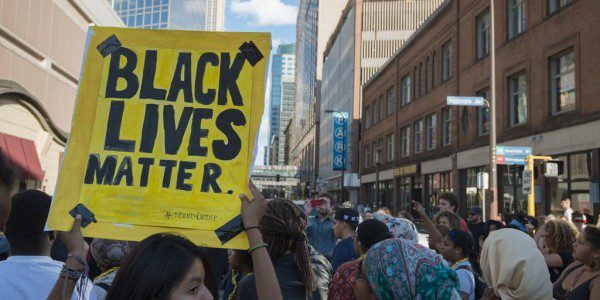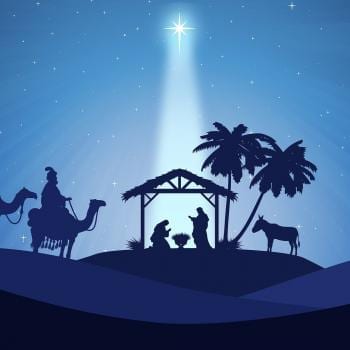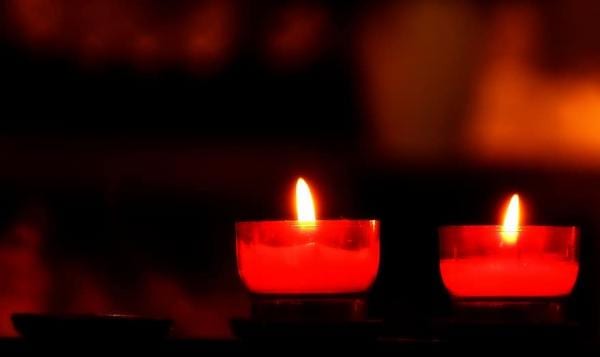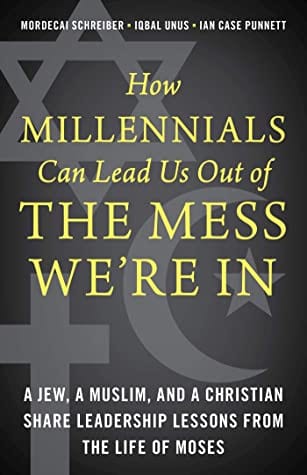I’ve been aware of white privilege for quite a long time.
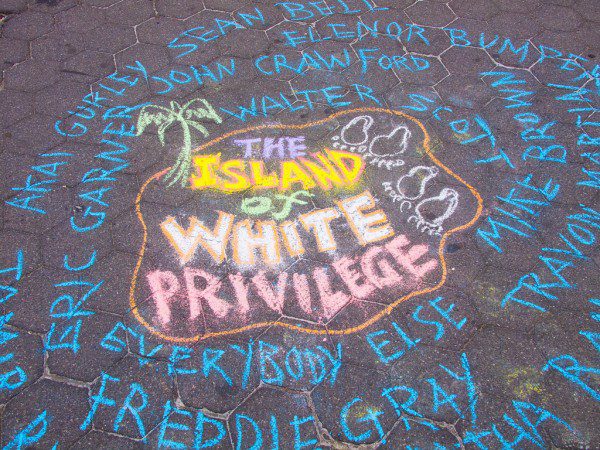
But it wasn’t until Ferguson that the implications of my white privilege really set in. With the shooting of Michael Brown on August 9, 2014, and the subsequent eruption of anger and frustration by the African-American community and those expressing solidarity, it began to set in, in a more deeply emotional sense, what my white privilege really means.
And then, only a few weeks after Michael Brown’s death, Chris Lollie, an African-American man, was accosted and tasered in a skyway in St. Paul, MN (video below)–not far from where I live and work. He had been sitting in what he deemed (understandably so, in my opinion) to be a public lobby area, waiting to pick up his daughter from preschool. His only offense? Someone suspected he was up to something, and called security.
https://www.youtube.com/watch?v=TpDHXJQ9D9k
He filmed his encounter with police. As I watched the film, I cried–in part simply because of the pure injustice of what was happening and in part because of a deep realization: I knew that this would have never happened to me. No one in that skyway would have called security to report me as “suspicious.” And there would have been no extensive run-in with police on the basis of something so innocent as waiting to pick up my child from preschool.
That same realization came back again recently–only even more intensely–when Philando Castille was shot and killed by police in Falcon Heights, MN–again not far from where I live and work.
Sometimes people incorrectly assume that white privilege means you’re automatically wealthy, successful, and happy if you’re white. And then they claim, on the basis of that faulty definition, that there’s really no such thing as white privilege.
What has become very clear over the past several years–“thanks” to the pervasiveness of cell phone video–is that white privilege is much more basic and severe than that. It means that if you’re white, you don’t have to be afraid that you’re going to be accosted, suspected, or killed simply because of the color of your skin. It means you don’t have to talk with your kids about how to protect themselves, about how to carry themselves, and you don’t have to help them negotiate their own fears about living in a world where the color of their skin puts them in a special kind of danger.
That is privilege.
But with privilege comes responsibility: the responsibility to do our very best to dismantle racist prejudices, both within ourselves and within those with whom we have some kind of influence. It does no good to feel “guilty” about white privilege, if we’re not also trying to change the system and structures which enable and perpetuate that privilege in the first place.


